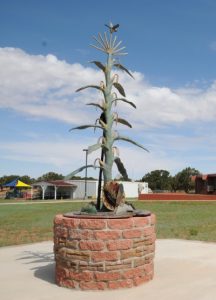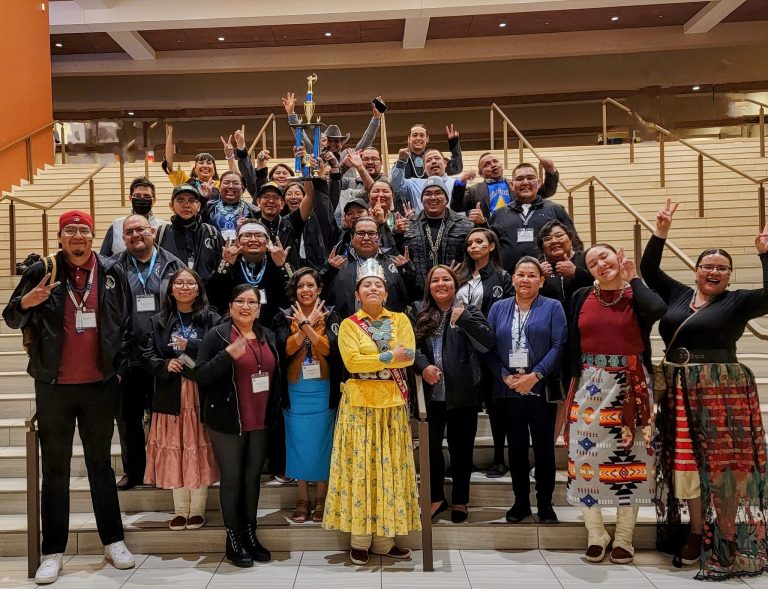Land Grant Office
Youth Development








Youth Development
All the youth camps are held throughout the summer months to avoid conflicts with school schedules. The Native American Environmental Youth Camps, also known as the Chuska Youth Camp, primary purpose is to educated Native American youth about the dynamics of the land and water. Youth between the ages of 9 – 15 are eligible to participate in the youth camps.
The camps are designed to utilize environmental science concepts that are taught in a hands-on learning environment which allow students to learn by doing. Students will gain awareness and understanding of safeguarding and restoring valuable natural resources by evaluating the health of a watershed through collecting basic ecology data at local streams and lakes, classifying plant vegetation, identifying sources of pollution and human impacts, and observing wildlife habitat, forest, rangelands and watersheds.
College student mentors will guide camp participants throughout the entire camp. This allows both college students and youth to learn about the exciting wonders of our natural environments. Field tours and outdoor classrooms will be offered during the camp at a Designated Community Campsite.


Afterschool Activities
Youth basketball, football and archery sports are conducted throughout the years correlating to the seasons. The Land Grant Office staff has implemented afterschool pee wee football and basketball practices. Practices are schedule two day out of the week and usually begin from 3:30pm to 5:30pm. The teams are place in league games that are coordinated by the Navajo Nation Office of Youth Development. So far, we have only been able to work with youth under the age of 12. Age division very by sport, Football combines all ages and Basketball is divided in age groups of 5-7 co-ed, 8-9 co-ed, and 10-12 boys and girls. Other pee wee tournaments throughout the reservation are identified so the participants can gain experience playing competitively. An entry fee is usually required by the participant to participate in fee events.
Archery involves learning the basic safety procedures shooting. The rules of the state 4-H is primarily used in hopes that our native youth can start competing at the state level. The LGO also host small local archery competition and practice for the youth from the nearby communities.
School Presentations
- Gardening projects: Local school teachers who would like to add to their current program or curriculum are welcome to request presentation on several topics. Topics include: garden planning and equine education. The Garden planning curriculum can be as informal or intensive as requested. It incorporates hands-on learning in the areas of Diné Tradition planting and planning, seed germination, parts of the plant, identifying vegetables, soil amendments, soil nutrients, composting, harvesting methods, cross pollination, and possibly building a hoophouse or greenhouse.
- Equine Education: This topic is great for school assemblies, heritage week, or career days. The talk presentations is usually up to 50 minutes long to allow the multiple grades to witness throughout the day. The presentation includes the basics of horse sense, husbandry, surroundings, learning and teaching, performance, and health management.
- 4-H: LGO works in association with the national 4-H organization, whose mission is; “ build a world in which youth and adults learn, grow and work together as catalysts for positive change.” to promote the Head, Heart, Hands, and Health lore, in many aspects of community and volunteer work. Extension Agent, Felix Nez has begun working with getting local schools involved with 4-H’s shooting sports world of activities by introducing archery. In addition, Felix has conducted presentations about hoophouse and greenhouse construction in order to integrate a sustainable and healthy lifestyle. A GIS/GPS technology was explored with assistance from the University of Arizona extension program. This technology is taught to youth by playing a geocaching game.

